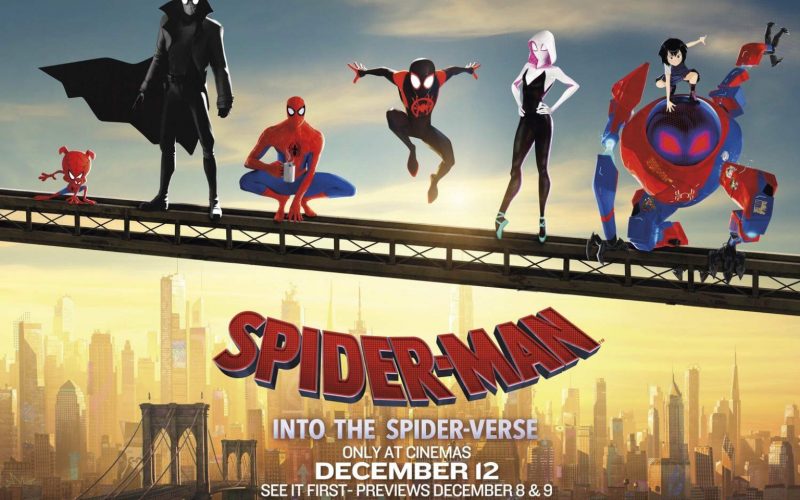Spider-Man: Into The Spider-Verse (2018).
2018 has continued the trend that we’ve seen in recent years in which comic book movies dominate both the box office and much of the film related conversation on social media. Starting with Black Panther and continuing on throughout the year with Avengers: Infinity War, Ant-Man and the Wasp, Aquaman and now a new animated adventure based on one of Marvel’s most enduring and endearing characters, Spider-Man: Into The Spider-Verse.
The basis of Into The Spider-Verse comes from the fact that there have been different Marvel characters all based around the simple idea that if you’re bitten by a radioactive spider, then you’ll get certain special powers.
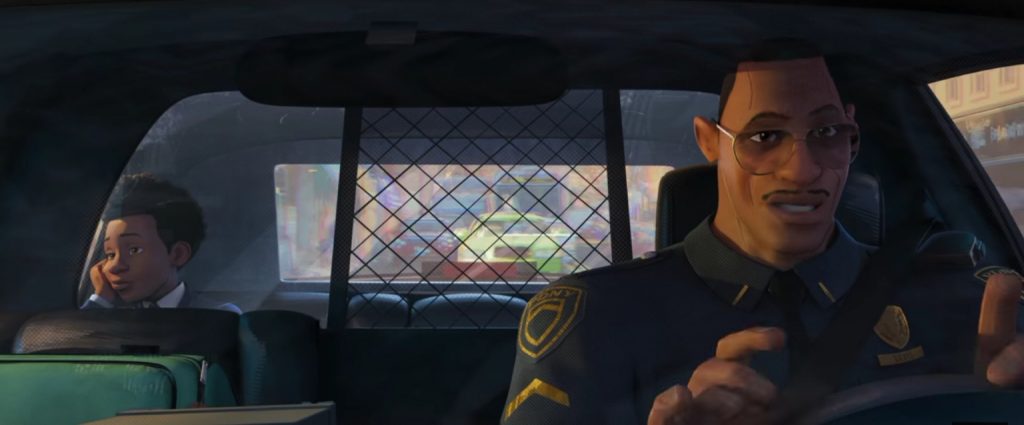
I must admit that I’ve never been the biggest comic book fan, however, if there’s one character that I’ve always been drawn to it’s Spider-Man. I first encountered him as an awkward teenager and recognised something in him which reflected my own experience at that time in my life. Peter Parker is socially awkward, bullied in school yet, because of a twist of fate that only comic books can provide, is able to not only rise up above his circumstances, but is also able to make a difference. This is the dream of every teenager – that there’s something inside them that others can’t see, something that makes them special.
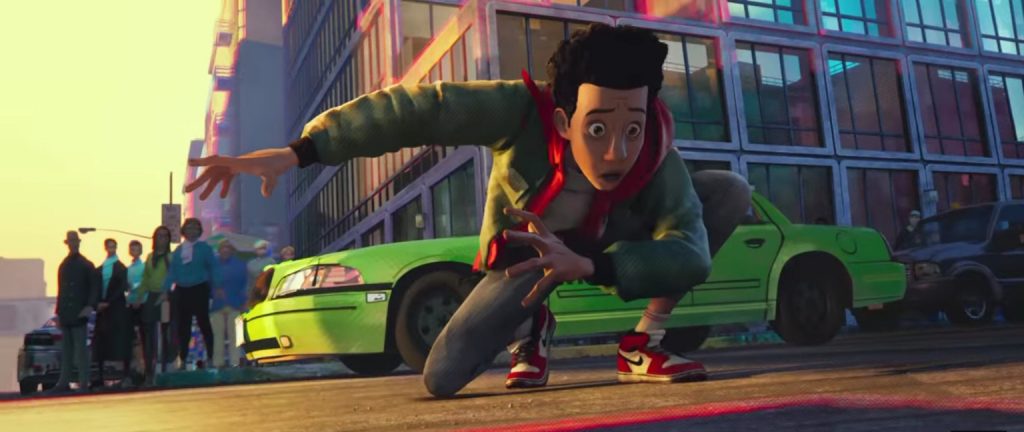
Of course, one of the things that made the Spider-Man story so special is that after obtaining these super powers, life doesn’t necessarily get any easier for him. The whole extraordinary adventure is rooted very much in the ordinary and this is what makes it special.
There are a huge number of positives about this most recent iteration, but the greatest is that it continues to provide wish fulfilment for youngsters in the audience in the form of Miles Morales, whilst also adding pathos and depth to the adult Peter Parker which is especially interesting to us grown-ups.

Here Parker has hit a crisis point in his life. After saving New York many times over, he has now fallen on hard times, the worst of which is his estrangement from the love of his life, Mary-Jane. He’s overweight and has lost interest in the whole superhero lark.
Without giving away too much, Miles Morales and this particular iteration of Peter Parker are from different universes, and are brought together by a particle accelerator designed by the Kingpin. Joining them are a number of other alternate reality spider-versions including Spider Woman (Gwen Stacey), Spider-Man Noir, SP//dr (Penni Parker – an anime version from the future) and, most bizarrely, Spider-Ham, a pig version of Spider-Man named Peter Porker (unfortunately, Into The Spider-Verse doesn’t include Homer Simpson’s Spider-Pig song). These multitudinous Spider-Variants must band together to stop Kingpin’s evil plans and find a way back to their own respective universes.

Into The Spider-Verse comes at you at a frenetic pace at times, which may have sunk any attempts at depth or pathos but thankfully the directors – Bob Persichetti, Peter Ramsey and Rodney Rothman – have managed to pull off the most delicate of balancing acts because, despite the pace of the film, it takes plenty of time to build character and there are some genuinely moving and funny moments. Morales’ father insisting that Miles tell him he loves him in front of the school with all of Miles’ school mates surrounding him, and Parker coming face to face with an alternative MJ who thinks he’s a waiter, are just two of many wonderful highlights.
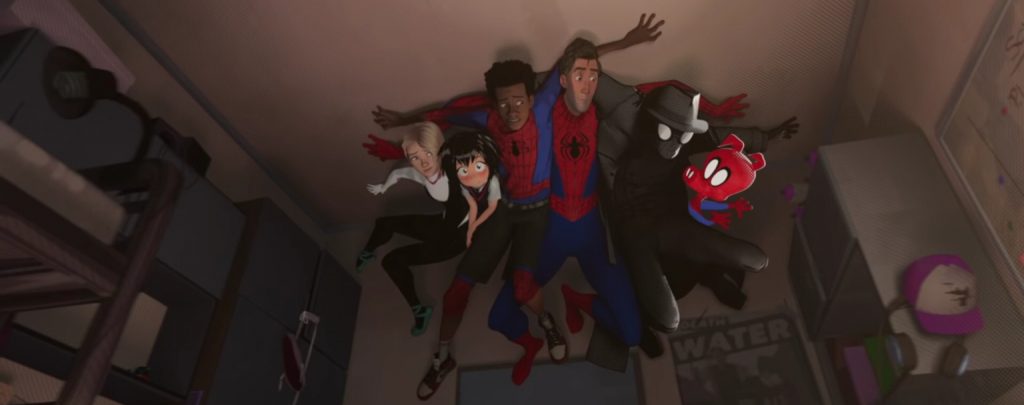
Another highlight for me is that when Parker explains his back-story, he refers to the Sam Raimi movies and the film then recreates a few moments from what many would argue are two of the greatest Superhero movies of all time including one of the most romantic ‘kissing in the rain’ scenes ever committed to film. There are also nods to the most recent incarnation which, once again, illustrates how the directors were trying to reach out to multiple generations. This is also evident in the style of the film which includes the same grain-like dots on the screen that readers of the original comic books would have seen. Such attention to detail really is to be applauded.
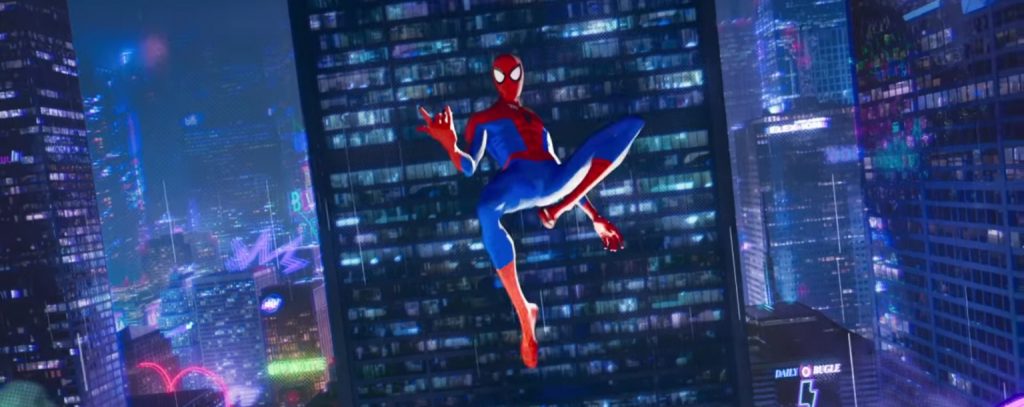
If there’s one negative it’s that some of the background styling seemed to suggest that the film was presented in 3D (even though I saw a 2D showing). This may have been intentional or it may have been a problem with the version I saw (other members of the Film ‘89 team reported the same problem in different cinemas) but the ghosting effect of background detail was unnecessarily distracting in the first half hour or so.
The performances are excellent throughout, with Liev Schreiber as Kingpin, Mahershala Ali as Miles’ cool uncle, and Nicholas Cage as Spider-Man Noir who just can’t grasp the concept of a Rubik’s cube because he can’t see colour.
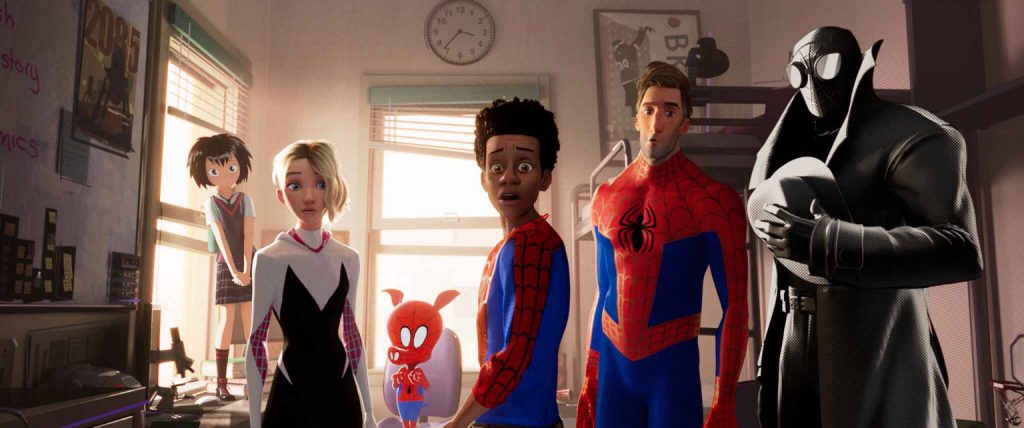
The nearly two hour running time zips along with such speed that you hardly notice it and at no time does it seem to drag. There are also a lot of laughs and some great dialogue throughout, much of which may be missed by children (reports of a ‘kid dressed as Spider-Man dragging a homeless corpse’, for example)
Spider-Man: Into The Spider-Verse is great fun for all the family. It’s meticulously crafted has some great action and it’s own unique visual style and a real depth, both emotional and in terms of the narrative and overall is a very enjoyable ride whatever universe you may hail from.
Film ‘89 verdict – 8/10
Spider-Man: Into The Spider-Verse is on general theatrical release now.


